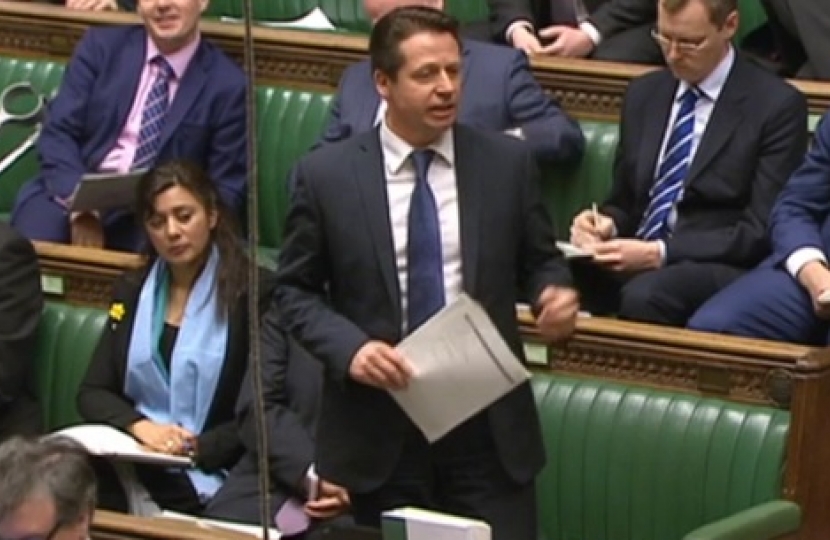
Yesterday in Parliament, I sought assurance from the Chancellor of the Exchequer that any unintended consequences of the implementation of the national living wage would be monitored. I have met with many local businesses recently including farmers, care homes, hoteliers and publicans and while most support the national living wage, they are also concerned about the pressure it will put on their ability to hire local people.
I asked:
“Most businesses, as well as workers, in my constituency warmly welcome the introduction of the national living wage and the increased spending power it will deliver. Will the Chancellor and his team carefully monitor the implementation of the national living wage to see whether there are any unintended consequences, particularly in sectors where margins are already small, such as farming, social care and hospitality?”
The Chancellor of the Exchequer replied:
“We will of course monitor the impact of all our policies on the economy and on particular sectors. That is one of the reasons why, alongside introducing the national living wage, we have introduced the new council tax supplement for the social care sector. The Office for Budget Responsibility analysis when we announced the national living wage was that, while in theory 60,000 jobs could be lost in the future that might otherwise have been created, the other policies we were pursuing would see over 1 million new jobs created, so the overall effect is an increase in employment of over 1 million."
A new National Living Wage will be introduced for those over 25 years and will be set at £7.20 from April 2016.
The Low Pay Commission will set out how it will reach 60 per cent of median earnings by 2020 and based on forecasts this means it will reach £9 by 2020. It will be compulsory for employers to pay this and as a direct result 2.5 million workers will get a pay rise, something Nigel warmly welcomes. As a result those currently working on the minimum wage will see their pay rise by a third over this Parliament which is a cash increase for fulltime workers of over £5,000.
The Office of Budget Responsibility assessed this will cost businesses 1 per cent of their profits which the Chancellor will offset by cutting corporation tax to 18 per cent by 2020. Businesses will also benefit from a 50 per cent increase to the Employment Allowance drastically cutting their national insurance bills.
For younger workers, the priority is to secure work and gain experience. In order to maximise such opportunities for young people, the National Living Wage will not apply, although of course the existing National Minimum Wage will. This is in keeping with the long-standing banding of the Minimum Wage, which currently has different rates for under 18's, 18 to 20, and over 21s. Of course, there is nothing to stop employers paying under 25s the National Living Wage, or indeed a higher wage, if appropriate.
For too long those on low incomes were caught in a system where low earnings were taxed on the one hand, but given back in form of various tax credits and allowances on the other. This is an inefficient way to support workers and taxpayers should not have to subsidise businesses who pay the lowest wages. I am glad bold action has been taken to introduce a National Living Wage while cutting their taxes so they keep more of the money they earn.
But we must ensure that the living wage does not have a negative effect on the businesses which employ people and support our local economies. I will continue to speak to local employers and monitor the situation. If any local businesses are concerned about the living wage I would be happy to look into their case and make representations on their behalf.
